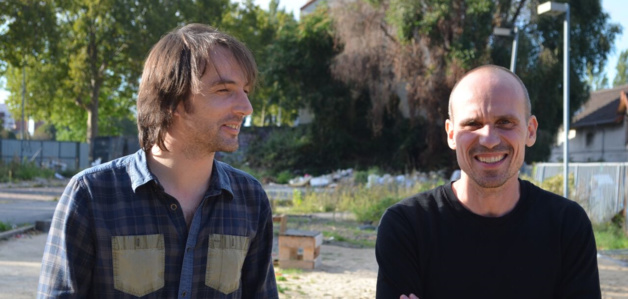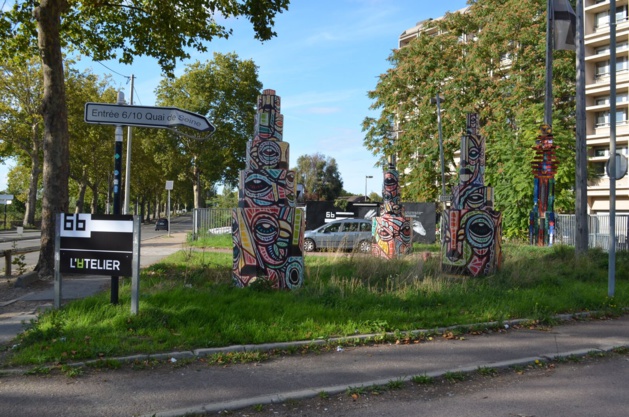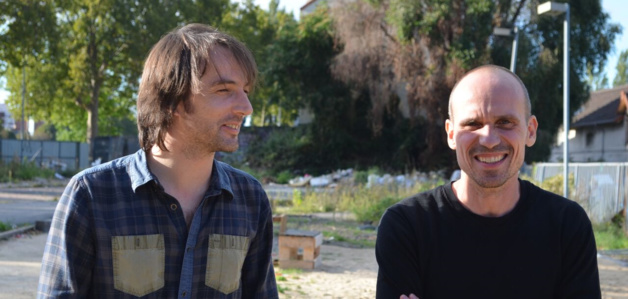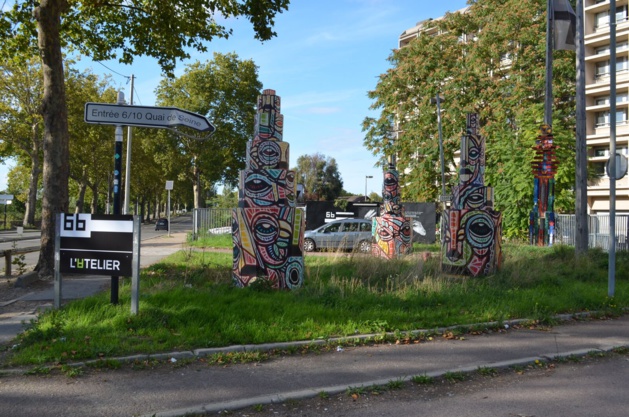
Credits Laurène Perrussel-Morin
They want to make German sexy despite its socks hidden in its sandals, to silence Karl Lagerfeld and to promote ‘German swag.’ The two musicians are not young German teachers who are in their first year of secondary school. Bertrand Boulbar and Sebastian Jung expressed these promises in videos on YouTube. Ten years after they met at Kreuzberg, the two musicians joined Electric Morgen and formed this musical project, using German.
‘French brought us closer’
Bertrand Boulbar remembers: ‘I was on a trip to Berlin when we met. I had noticed that Sebastian was Francophone. As I don’t speak English very well, I felt a bit isolated, so he helped me. French brought us closer.’ One decade later, the two friends meet again in German. Bertrand Boulbar, who has not mastered the language of Goethe, likes to say that ‘language is like an instrument.’ And it is how he uses it.
His French-speaking companion writes the songs. ‘We tried in French and in English’, he tells, ‘but something was wrong. Then we chose German and it happened that Bernard told me “this word does not work.” What is funny is that he was able to pick out the important words and to put them back in their right place.’ The lyrics of the songs are above all used for their tones. The expressions are gathered to each other as in a collage, without altering the meaning of any of the music piece. This choice is an integral part of the musical concept of the group, which claims its risk-taking.
‘Writing French-like, but in German’
Sebastian Jung assures that his lyricist work is inspired from the two cultures: ‘The way we write is French, but in German’. The singer, who says his songs are inspired by musicians such as Alain Bashung or Dominique A, states that French music is more abstract than German music. This ‘old fashion’ way of writing, as well as the use of words that are barely heard in everyday life is favoured by the group, which may surprise a German audience.
In France, it is not the way of writing, but rather the use of German that is surprising. As German is often perceived as guttural, it is rare that musicians decide to adopt this language for their work, in Germany as well as in France. The institution of musical quotas is regularly debated across the Rhine. In France, while 40% of songs broadcasted on air must be in French, German is still rarely spoken, therefore hardly sung. Bertrand Boulbar tells: ‘We chose German for artistic purposes, but in France it is a unique choice. French labels looked at us with astonishment when we told them we wanted to sing in German’.
The 6b, a landmark for Berliners

The EP will be released in a few weeks and the two musicians, working in the ‘6b’ studios-former squats of Saint-Denis- have their heads full of other projects. Bertrand Boulbar explains: ‘we met an artist who works further in the corridor and who could make a video, using a piece we will entrust her with. The idea is to use the 6b as an opening towards other disciplines.’
With totems in the garden, an area covered with sand to organise concerts and graffiti in the stairwells, the 6b reminds us the ‘Hausprojekten’ (‘project houses’) which appeared in vacant buildings of Berlin after reunification. Over six floors, the place welcomes artists from various backgrounds with a kind of Berliner air. The second floor resounds with some German notes.





























